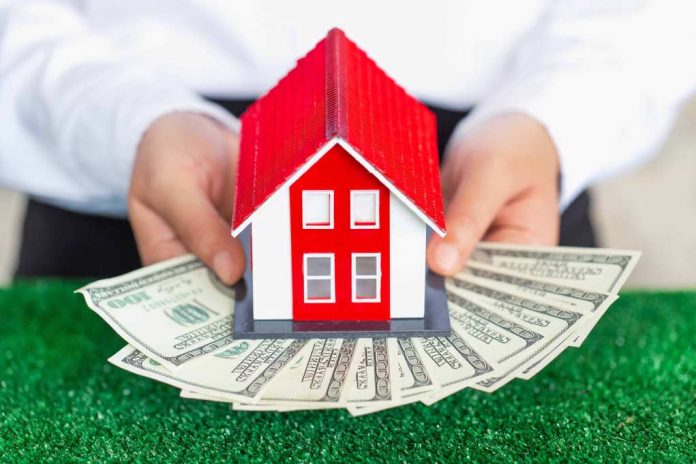
Do you constantly feel drained when you pay your rent? If you feel that way, you should know that you are not alone. According to the Center for Housing Policy, transportation and housing costs have increased by 44% since the year 2000. On the other hand, household incomes have only increased by 25%. In 2021, there were 24 million low-pay Americans that spent most of their annual income on housing and transportation costs. This is why it is not surprising that there are more than 10.4 million people in 5.2 American households that get some form of federal assistance.
You will find many options for assistance for much that you need help with in your life. But, federal housing assistance programs are one of the most reliable programs in the United States. You will need to qualify to get any type of federal assistance, which is not an easy thing to do. It may feel a little overwhelming for you to deal with applying for federal assistance but don’t worry; it is easier to file for federal assistance than you think. You will find that there are different federal government housing assistance that will offer financial relief to help your current situation.
This article will let you know about the different housing assistance programs that the federal government funds to help low-income Americans across the United States. Additionally, we will tell you how you can benefit from the assistance programs and how you can apply.
Government Housing Assistance Programs
With government housing assistance programs, you will find that there are four different types of housing programs that can help you. The Federal Government takes responsibility for funding housing assistance programs but local and state governments are in charge of implementing and managing these programs. Keep in mind that each state varies from another and you might find differences between two states, in terms of implementation. This means that the eligibility requirements and application process can differ, depending on where you live. You need to remember that when you are applying for housing assistance. Additionally, it is important that you decide to apply for housing assistance programs that can actually improve your current situation. There is no need for you to apply to a program that cannot help you, but could have helped someone else. This is why you should only apply for the right housing assistance program.
Rent Payment Assistance
There are different housing programs that help low-income Americans cope with high costs of rent. One of the most common programs is the Housing Choice Voucher Program, also known as Section 8 Assistance. This housing program gives out housing vouchers to eligible recipients to help cover the cost of rent. As a recipient, you have the chance to use your housing voucher towards rent from any housing unit that will accept vouchers as a form of payment. Additionally, the housing unit of your choice needs to pass state inspections and meet the standards of the program.
The Section 8 Program distributes housing vouchers to qualifying tenants that will cover a portion of their rent. Typically, your local Public Housing Authority (PHA) is responsible for setting your voucher’s amount but this depends on your eligibility. You could qualify for a housing voucher that would cover your entire rent or you could use the housing voucher to cover a portion of your rent in an expensive housing unit and you will only need to pay the difference. You need to make sure that you are eligible for the program, though. This includes:
- Meeting your area’s low-income conditions
- Finding a property that is approved by Section 8
- Making sure that your landlord accepts your application
Similar to public housing, the Section 8 Program has long waiting lists. There is a possibility that you will be on the list for a long time; it depends on the available vouchers that will be distributed. Additionally, you need to make sure that you meet all four eligibility requirements to qualify. The four requirements are: your eviction history, your income level, your family size, and your citizenship status.
Public Housing
Public housing is a form of federally subsidized rental property. This could be the following housing properties:
- Apartment complex
- Cluster of private houses
- Series of duplex houses
The Department of Housing and Urban Development (HUD) funds these complexes but your local Public Housing Authority (PHA) manages the public housing program. You will need to meet your local PHA’s eligibility requirements, so that you can sign the lease. After you sign the lease, you will find that it is similar to moving into a housing unit that a private landlord owns. If you want to find if you qualify for public housing, then you need to:
- Meet your area’s low-income requirements
- Pass a background check with references
- Be a U.S. citizen or have a qualifying immigration status
- Meet with your local Public Housing Authority agent in person.
According to HUD, there are almost one million households that are living in public housing now. You need to remember that these housing units have limited space and there is a long waiting list for an available unit to turn up for a new recipient. There is an increased demand on public housing and not enough funds to supply the demand so you might have to wait a while to receive public housing. Also, do not forget about those eligibility requirements. They could stop you from receiving any assistance from public housing.
Rental Assistance in Rural Areas
You will need to qualify to receive this type of private subsidized housing. The United States Department of Agriculture provides this Program for eligible low-income Americans. Through this program, property owners receive tax incentives when they offer units at a discounted rate for eligible families. According to the United States Department of Agriculture (USDA), you will qualify, if you live in or are willing to move into an approved rental property with rent that should be more than 30% of your household’s income.
If you plan to apply for the Rural Rental Assistance Program, then you will need to have:
- Proof that you have a qualifying income
- Proof that you have a qualifying rent
- And, you need to make sure that you pass the landlord’s specific eligibility requirements
According to the United States Department of Agriculture Program, the Rural Rental Assistance Program helped more than 250,000 Americans across the United States until June 2021. The USDA designed the Rural Rental Assistance Program to offer homeownership opportunities to rural American families, along with home renovation and repair programs. Additionally, the USDA offers financing to seniors, people with disabilities, and low-income rural families that live in multi-unit housing units. This will ensure that the target groups make rent payments on time.
Other Options
There are other options available such as the housing counseling assistance program. Additionally, there are assistance options that the federal government does not manage. If you want to consider other options you will need to find alternatives from charitable organizations or your state government. State programs could include assistance options that will help with emergency rent, earning money fast, free money management counseling, and much more.
There are a lot of charitable organizations that offer one-time funds for eligible individuals and families. You can use these funds for housing expenses, such as a security deposit. All programs are different, when it comes to eligibility requirements so you need to make sure that you meet the requirements to qualify. Typically, housing assistance programs depend on your income as the main factor to determine your eligibility since the main goal for these programs is to help low-income families and individuals with housing expenses. This means that you need to fall under the low-income bracket. In this context, the less make means you will have better chances of qualifying for the program.
If you need help with housing repairs you can consider applying for the Low Income Home Energy Assistance Program (LIHEAP). The LIHEAP will provide financial relief on the repair costs of heating and cooling systems in your property. Additionally, you can use the funds to pay your bills, repair any energy-related concerns, and\or weatherization of your property.
Privately-Owned Subsidized Housing
If you do not want to wait for government-subsidized housing, you should think about privately-owned housing assistance options. Private landlords or property management companies own housing complexes that are transformed to subsidized-housing. These companies need to offer a set number of residential properties at a reduced rate for eligible tenants. In return, they receive a tax credit. These complexes are better known as “mixed-income housing”. This means that both normal units and discounted units co-exist in the same complex.
The amount that will be deducted from your rent depends on several factors. Some landlords will offer a standard reduced rate to eligible individuals. On the other hand, there are other property managers that will determine your rent based on your monthly income. As mentioned above, the less money you make means that you will be responsible for less rent. If you want to qualify for privately-owned subsidized housing, then you need to:
- Pass a background check
- Earn less than the specified maximum monthly income amount. ( You might find that this varies, depending on your location)
- Meet the landlord’s rent qualifications
Additionally, you might find that the property manager requires certain conditions and criteria from their tenants. This means that there might be additional eligibility requirements that you need to meet. As opposed to government housing assistance, the eligibility requirements will depend on whatever the landlord or property manager sees fit.
Conclusion: How Can You Apply for Government Housing Assistance Programs
If you want to apply for government housing assistance, then you will need to offer documents that prove your current housing and financial situation. This includes:
- Social Security numbers for all the members of the household
- Your driver’s license or state-issued I.D.
- Recent pay stubs or any proof of income
- A Copy of a recent bank statement
- A Copy of your lease agreement
Keep in mind that your eligibility depends on the documents you provide. That is the Program’s way of determining your housing needs and understanding your current situation. They cannot just take your word for it.




























